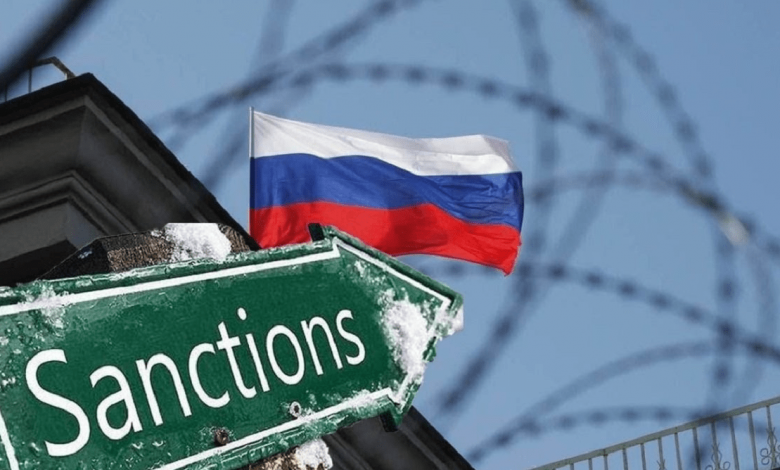How Sanctions against Russia affect the Global Economy

While Russia is trying to cushion the impact of the sanctions, countries around the world are feeling the effects of these sanctions on their own economies. Economists fear a crisis in global trade. An overview of possible effects.
The sanctions imposed on Russia are hitting not only Moscow but inevitably the economies of the countries that helped impose those sanctions. Economists are warning of an impending global recession as financial turmoil intensifies. Here is an overview of the main points:
International Monetary Fund warns of ‘severe impact’
Sanctions imposed by the West on Russia will have a greater impact on global gross domestic product (GDP) than the conflict in Ukraine itself, the World Bank said Monday. The International Monetary Fund (IMF) also warned of “severe repercussions” for the global economy and financial markets, saying that sanctions against Russia will have a significant impact on many countries.
Global trade in distress
Nearly all economies are already experiencing a decline in international trade due to disruptions triggered by the conflict in Ukraine and subsequent economic sanctions, according to data from the German think tank Kiel Institute. International trade has only just begun to recover from the pandemic-related slump in 2020, and the next crisis is already following. Rail freight between China and Europe, which runs through Russia, saw a boost last year due to congestion at major ports, but is now suffering from increasing cancellations by European customers. Sanctions against Russia are beginning to affect global trade, analysts say, pointing to devastating consequences for international importers.
Problems with supply chains intensify
Hundreds of tankers and bulk carriers have been diverted from Russian and Ukrainian ports in the Black Sea. The ships are stranded in ports and at sea, unable to unload their cargo due to the sanctions. Global supply chains that worked for decades have already been disrupted by the Corona crisis, causing massive shortages, disruptions, and price increases. According to various experts and analysts, the Ukraine crisis and the tensions caused by the sanctions could trigger an “unprecedented earthquake” for global trade in goods and services, which will never be the same again.
Looming food shortages
The conflict and Western sanctions could threaten the livelihoods of millions of people. Food prices, which had already been rising since the second half of 2020, reached an all-time high in February 2022 due to high demand, high input, transportation costs, and disruptions at ports. The United Nations Food and Agriculture Organization (FAO) said that the current situation could trigger a global food shortage, as Russia and Ukraine play a major role in global food production and supply.
Data from the UN organization show that world market prices for wheat and barley increased by 31 percent during 2021. Rapeseed oil and sunflower oil prices increased by more than 60 percent. High demand and fluctuating natural gas prices have also driven up the cost of fertilizer. Russian President Vladimir Putin has warned that Western sanctions against Moscow could further drive up global food prices, as Russia is one of the world’s top producers of fertilizers, which are essential for global agriculture.
Sanctions-induced inflation
As the United States and Europe tighten sanctions against Russia, Western consumers will soon face higher costs for everyday products, analysts say. The price pressure comes at a time when inflation in the United States has already reached a nearly 40-year high. Russia is a leading exporter of oil, natural gas, coal, metals, minerals, rare earths, wood, and plastics, which are used worldwide in a range of products and in a variety of industries, from steel to automotive to electronics.
Crippling Western sanctions have already caused commodity prices to reach historic highs. Rising energy costs have weighed on consumers and households worldwide. Analysts warn that costs could soon rise to unaffordable levels, despite the release of strategic reserves by a number of countries.
Fear of a global recession
A new Bank of America (BofA) survey shows that worried investors have begun hoarding cash due to recession fears. According to Michael Hartnett, BofA’s chief investment strategist, global growth expectations among fund managers are at a 14-year low. The majority of respondents expect inflation to be “durable.”
In terms of risks, the Russia-Ukraine crisis is seen as the biggest “tail risk” for markets, followed closely by a global recession. Economists say inflationary pressures have been building since before the crisis. Rising oil and gas prices have set off recession alarm bells around the world. And now, the U.S. economy has also begun to give a recession warning sign.
My Outlook: Rising inflation, rising energy costs, an almost certain recession in the eurozone, and a dangerously flat yield curve.
